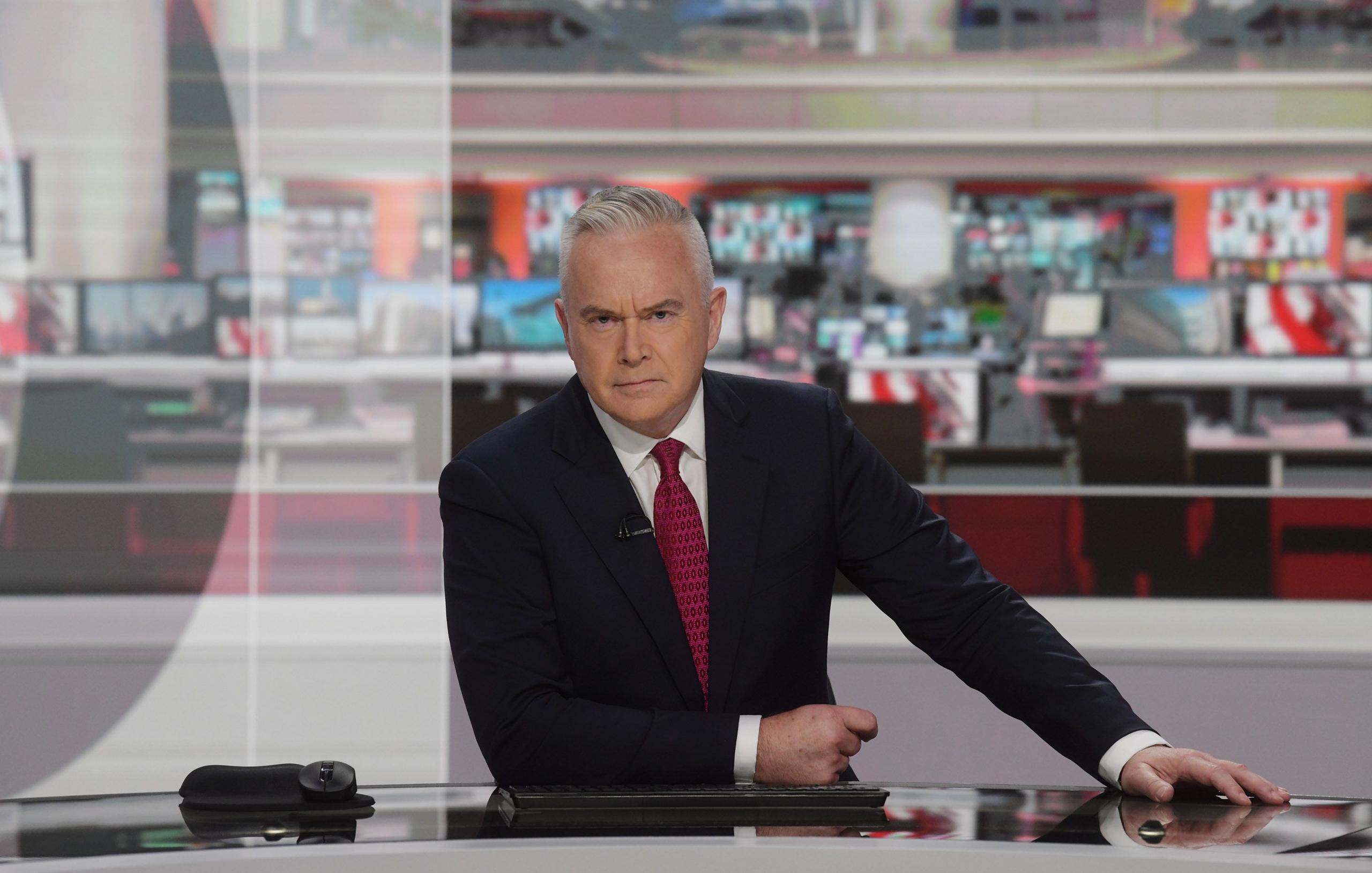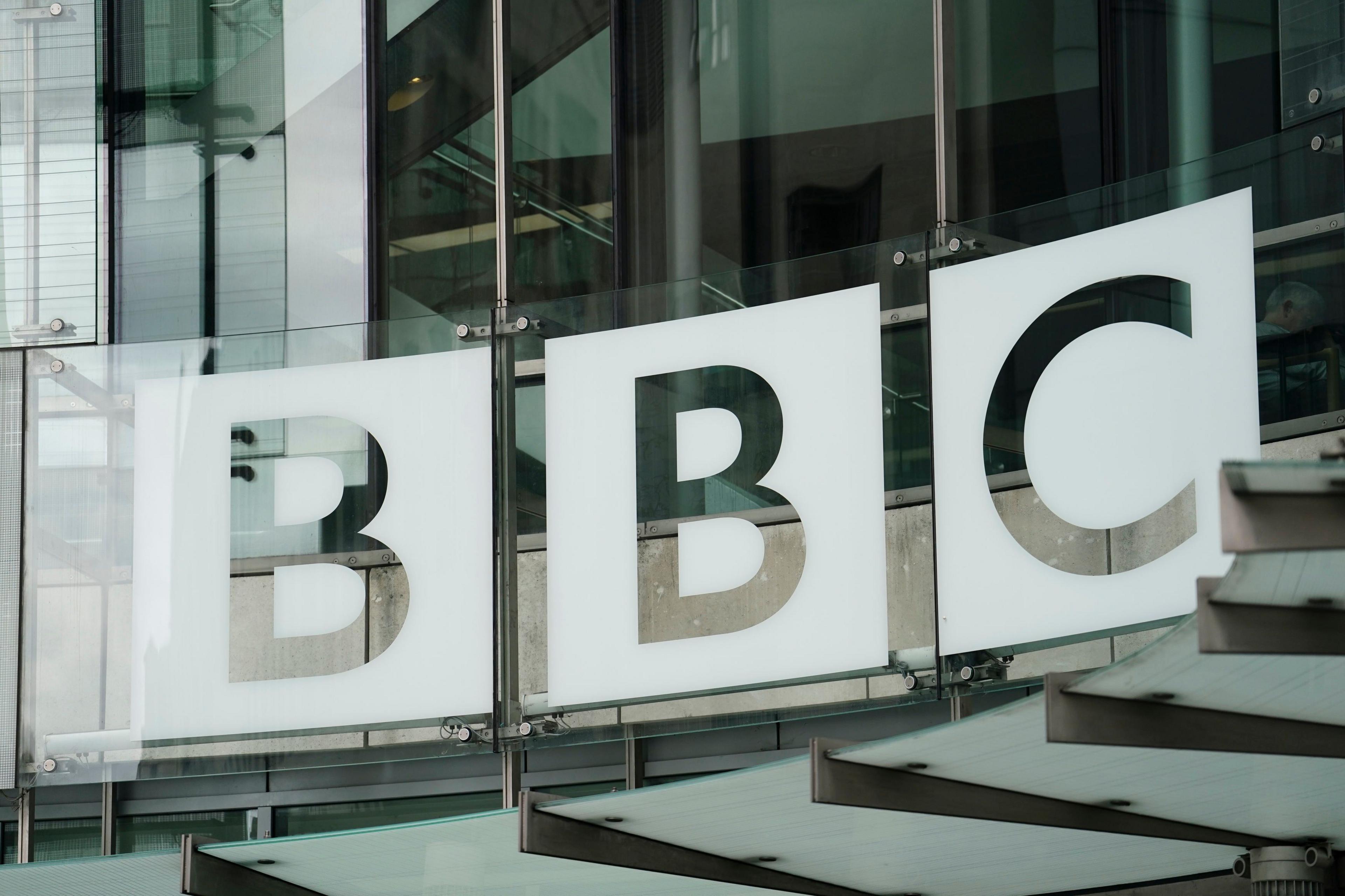Is the BBC realistic to ask Huw Edwards to return his pay?

Huw Edwards has been asked by the BBC to hand back more than £200,000
- Published
As the BBC’s highest-paid news presenter, Huw Edwards was on a salary of almost half a million pounds.
So recouping the money from the time of his arrest last year, before he resigned in April, might go some way to restoring faith in the corporation’s handling of one of its biggest - and now entirely disgraced - stars.
But in writing to Edwards to ask him to return the money, the BBC appears to be relying on him to do the right thing.
In light of what we now know about his past behaviour, how realistic is that position?
BBC asks Huw Edwards to return more than £200,000
- Published9 August 2024
Huw Edwards resigns from honorary posts
- Published9 August 2024
BBC Board's statement in full on Huw Edwards
- Published9 August 2024
Timeline: How the Huw Edwards scandal unfolded
- Published16 September 2024
The board says that he “has clearly undermined trust in the BBC and brought us into disrepute”. It calls him the “villain of the piece”.
Strong words and an indication of the recognition of just how much it has damaged the BBC’s reputation.
Today’s statement doesn’t hold back in condemning a man who, until very recently, was one of the BBC’s most trusted presenters.
This would have been unimaginable a year ago. But so much has changed, and his betrayal of the BBC and all it stands for is deeply felt by the corporation.
But the board is firmly backing the decisions by the director general and other executives last year, to continue to pay Edwards after his arrest.
He would have received around £200,000 of licence fee payers’ money over the five months after the BBC knew he had been arrested in November, and before he was given the space to resign.

The BBC has already had two internal investigations into Huw Edwards
Some will understand the BBC felt it had contractual and duty of care responsibilities. But many won’t.
It’s also instructive that the chair, Samir Shah, who took up his post in March, has said he’s “exercised” by the ongoing issue of how the BBC handles bad behaviour by those with power within the organisation.
The independent review they’re launching that will make recommendations into workplace culture will be welcome.
But there have already been two internal investigations.
One was into the original allegations against Huw Edwards made by the Sun newspaper, that he paid a teenager for explicit photographs.
After that there was a confidential disciplinary process into his behaviour towards colleagues.
Neither was published in any form.
How much these investigations will inform this new one - if at all - isn’t yet clear, and whilst it will be published, it will be forward-looking, rather than than dealing with the specific concerns raised in the past.
The true test in future will be how thoroughly the BBC listens to employees who have concerns - and whether it will fully act on their complaints.